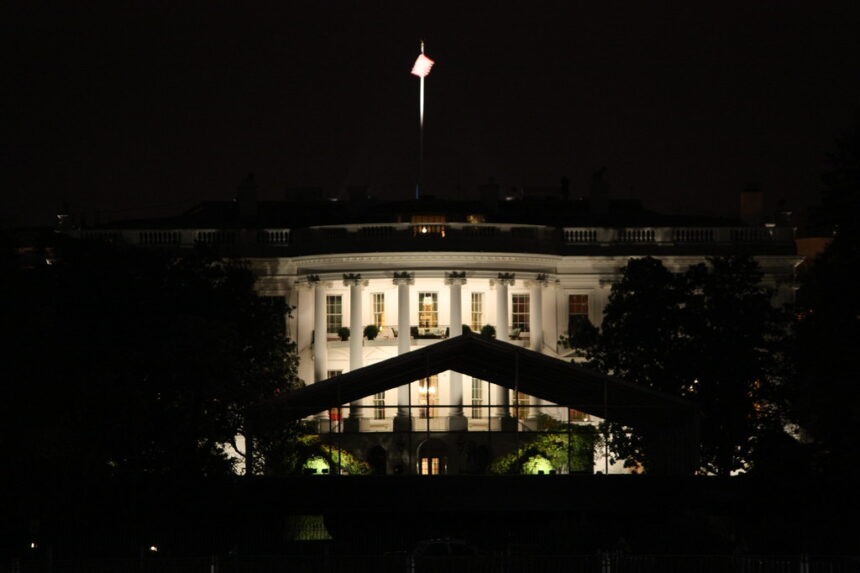All eyes are on Canada’s dialogue between the US and Mexico, now that Mexico has bought itself a reprieve from Trump tariffs.
Following discussions between President Donald Trump on Monday morning and Mexican President Claudia Sheinbaum, the United States has delayed imposing tariffs against Mexico for a month.
Trump confirmed his decision after a “great talk” with Sheinbaum. He highlighted Mexico’s commitment of permanently deploying 10,000 soldiers along its southern border in order to curb illegal immigration and drug trafficking.
Trump has made it clear, however, that tariffs remain a possibility.
“Tariffs aren’t totally off the table,” He told reporters at the White House. He was signaling that future economic sanctions could be reinstated if Mexico does not meet US expectations regarding border control.
Sheinbaum, at a Mexico City press conference, described the agreement in Mexico City as “very respectable,” emphasizing the relationship of “respect” and “equals” between the nations.
Canada enters high-stakes negotiations with Trump
Canada, unlike Mexico, has not yet reached a compromise with the US.
Justin Trudeau, Prime Minister of Canada, spoke with Donald Trump on Monday morning. However, they failed to reach an understanding before the tariffs scheduled to be implemented on Tuesday.
The two leaders are expected to speak again at 3 p.m. Eastern time, but Canadian officials remain pessimistic, according to The New York TimesDon’t Miss a Beat: Subscribe to receive email alerts directly to your inbox
Canada has retaliated quickly against the impending 25% tariffs on Canadian exports.
Ottawa announced countermeasures of 155 billion Canadian Dollars ($106 billion) against American goods, prompting political leaders to call on Canadians prioritise domestic products.
Trudeau posted a message on X saying, “Now is the right time to choose products that are made here in Canada.” “Check the labels. Let’s do our part. “Wherever we can, select Canada.”
Social media has seen a rise in patriotic campaigns that encourage consumers to support Canadian businesses. Videos with shopping tips and dramatic music accompanying them have been popularized.
Ontario has also cancelled a major contract with Starlink, a satellite internet service owned and operated by Elon Musk.
The contract, valued at 100 million Canadian Dollars ($68 million), was seen by many as a symbolic gesture against US companies that benefit from Canadian investments when the country is facing trade penalties.
Why is it difficult to predict Canada’s response?
Kevin Hassett is President Trump’s top economist. He dismissed Canada’s retaliation. Hassett argued that the tariffs weren’t about trade, but border security and fighting illegal drugs.
Kevin Hassett said on CNBC that Mexicans were very serious in their commitment to follow through with what President Trump had said.
Hassett said that “Canadians seem to have misunderstood and misinterpreted the plain language of this executive order, and they are interpreting it as an economic war.”
Pierre Poilievre, Canada’s leader of the opposition, has called for the deployment 2,000 troops along the US-Canada border and significant investment in surveillance technology.
He said that such measures would help Canada negotiate an exemption from tariffs.
A White House official told Politico the US tariffs were primarily about border safety rather than trade disputes.
Trump’s recent comments suggest that economic concerns are also at work.
“Canada does not even allow US banks there to open or do any business.” What’s the deal?” Trump asked on Reality Social on Monday morning.
“Many things, but also a DRUGS WAR. Hundreds of thousands of Americans have died from drugs that are flowing through the Borders between Mexico and Canada.”
Sources familiarized with the negotiations claim that Trump views Canada as a more complex case than Mexico because he wants to make additional concessions outside of border security.
“Canada is more complex because he wants to make concessions on other matters–apart from border and fentanyl. According to Politico, a person familiar with the talks said that he had made this clear.
Canada’s role in the Fentanyl Crisis
The White House has tied the Canadian tariffs with concerns over fentanyl, arguing that Canada has moved from being a transit center to a significant manufacturer.
US officials claim that Mexican cartels expanded their operations into Canada, setting up fentanyl and Nitazene Synthesis Labs within its borders.
The Canadian authorities have acknowledged that the black market for synthetic opioids and fentanyl has grown in recent years.
They argue, however, that trade restrictions won’t do much to address the drug problem and could instead damage economic ties between both nations.
This post Mexico secures temporary exemption from Trump tariffs – will Canada follow? This post appeared first on ICD
This site is for entertainment only. Click here to read more






